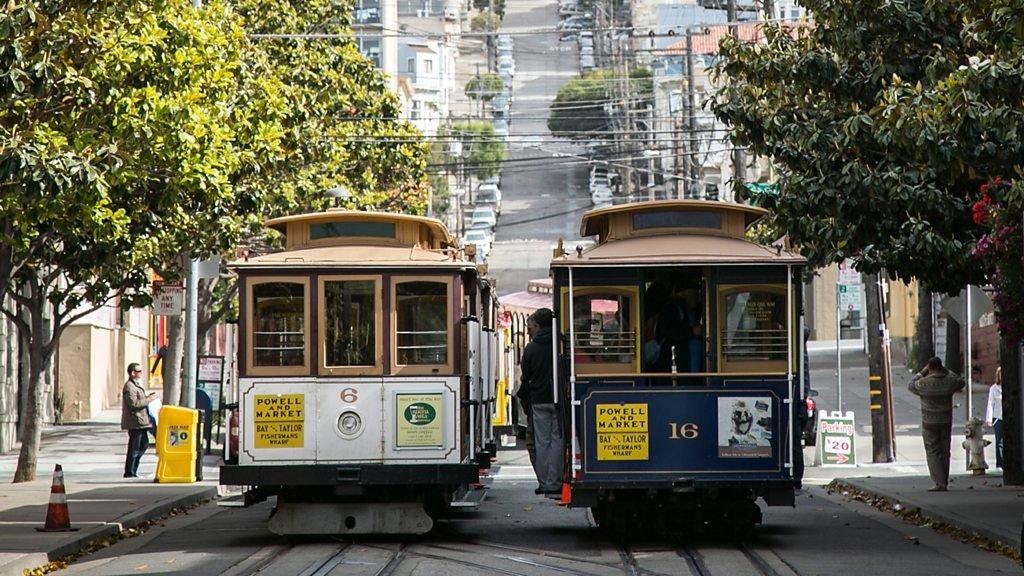Cycle more and plant trees: Tips to reduce air pollution
- Published
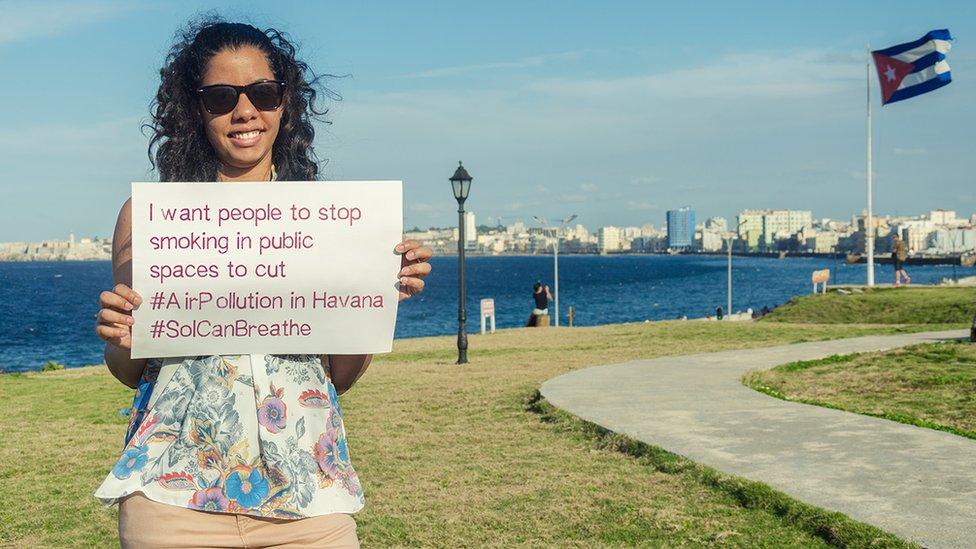
Mabel Olalde Azpiri would like to end public smoking so she can breathe cleaner air in Havana, Cuba
From Ghana to Argentina and London, air pollution is a problem that people want to do something about.
As part of the BBC's So I Can Breathe series, a week of stories exploring some of the different ways the world is seeking to reduce air pollution, people have been sharing their tips on how to improve the air around them.
For Phoebe, Joleen and Isobel, from London, the answer is to stop cutting down trees.
Students at 50 London schools breathe air that exceeds legal pollution limits.
"Toxic air audits" have been announced by the mayor of London to combat the problem.
According to the US Forest Service, trees typically reduce urban air pollution by only up to 1%, but even this can have significant health benefits.
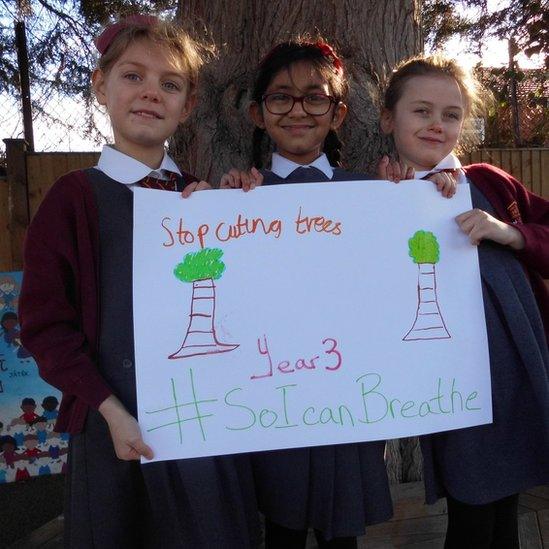
Phoebe (left), Joleen (centre), Isobel (right)
Areej and her mother also want to plant trees in urban areas of Damascus to improve air quality.
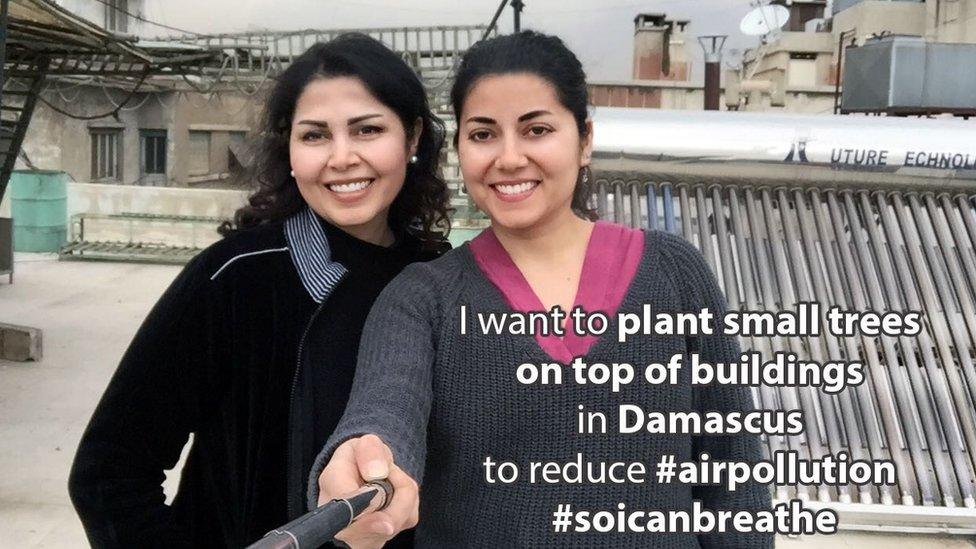
Areej and Hala in Damascus
Wood-burning stoves are a cause of high indoor air pollution levels which have been linked to four million premature deaths annually, according to the World Health Organization., external
Adboulie Sey thinks they should be banned from The Gambia and solar energy promoted instead.
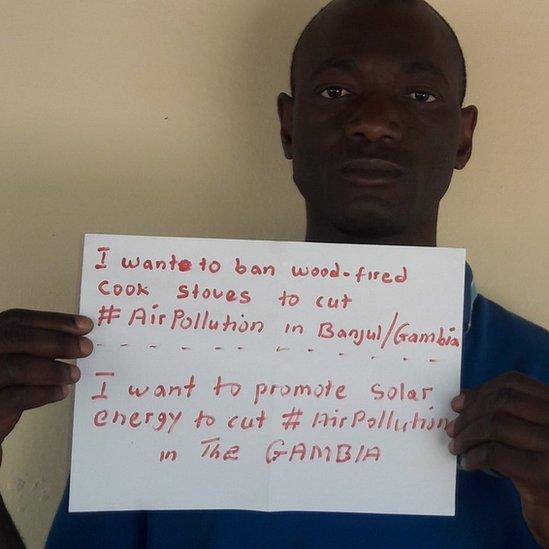
A tax on wood stoves is another solution, suggested by Karen Baines, external on Twitter.
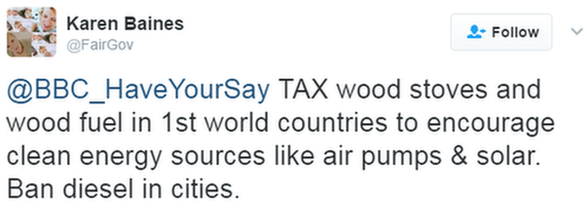
Improving how we travel is a common desire.
Swapping driving for cycling can reduce the number of vehicles on the road emitting pollutants such as nitrogen dioxide.
Clare Rogers tweeted this picture of her and her daughter in Enfield.
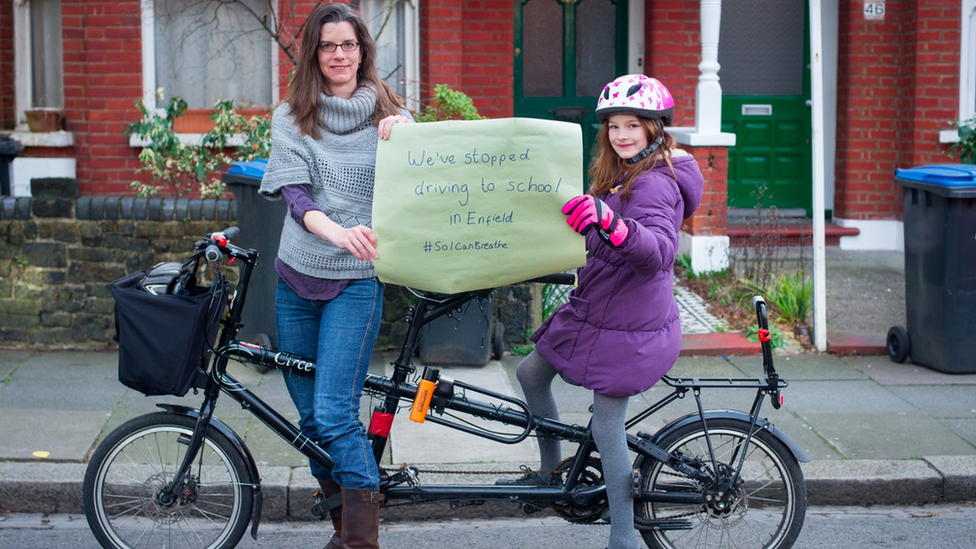
Clare Rogers and her daughter have swopped their car for a bike on the school run
Robert Singleton, external suggests a ban on diesel powered vehicles would go some way to reducing pollution.
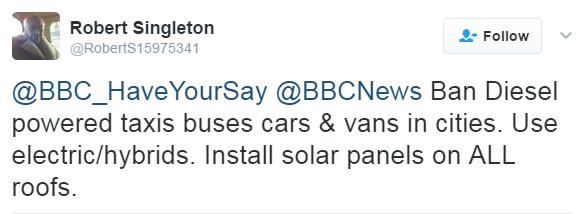
Girl guides helping to clean Ghana's air pollution problem
Improved public transport is also proposed by Maria Innes in Buenos Aires, and echoed by Oscar Soria, in New York.
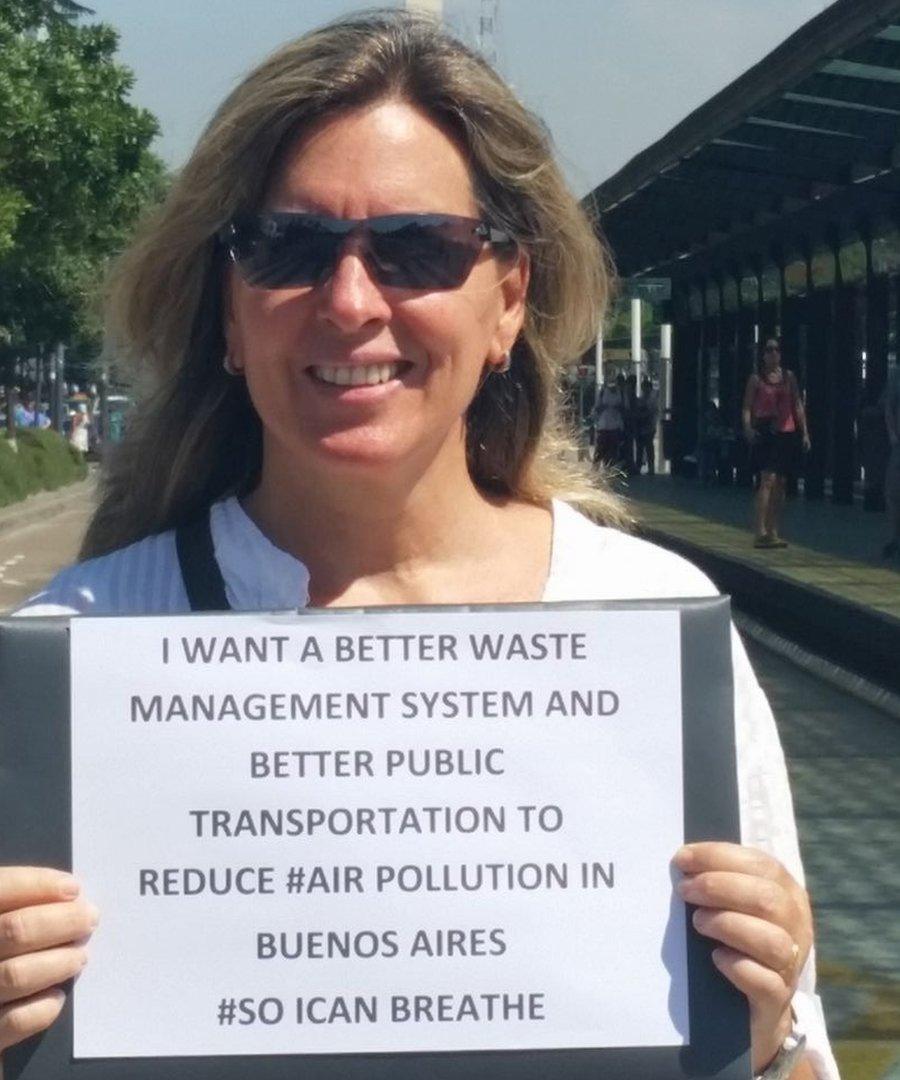
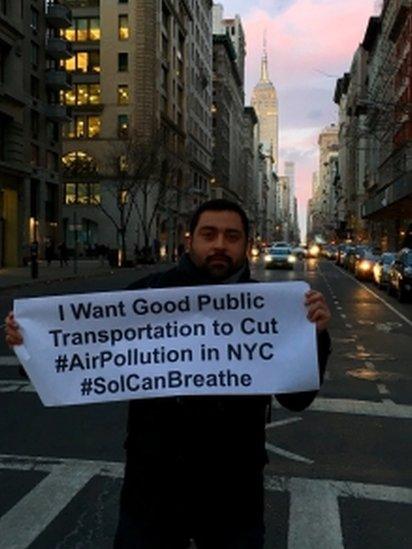
Mike Hall, external thinks government schemes to support people buying hybrid or electric cars is one way to encourage more environmentally friendly transport.
And Pablo Nieto Gonzalez in San Sebastian, Spain, wants emissions from ships to be cut.
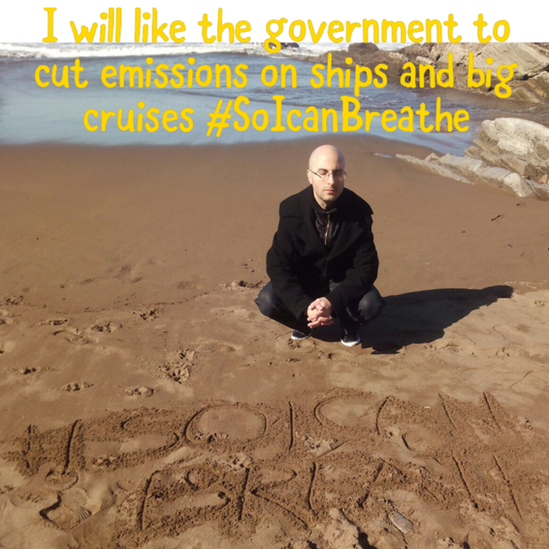

So I Can Breathe

A week of coverage by BBC News examining possible solutions to the problems caused by air pollution.
- Published6 March 2017
- Published3 March 2017
